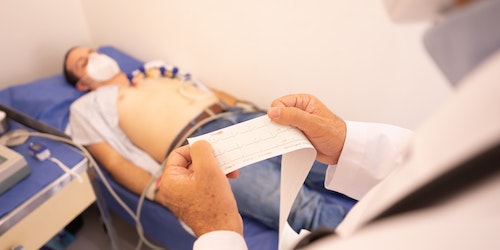A respiratory failure is a significant life altering situation, one that can have serious repercussions for yourself as well as your family in the next days, long stretches of time. It requires another way to deal with your way of life as a feature of your recuperation, however it doesn’t be guaranteed to need to demolish the remainder of your life.
Complete recuperation after a respiratory failure is workable for some coronary episode survivors, and most can continue a typical or close typical way of life. Nonetheless, it requires giving your very best for forestall a subsequent coronary episode or creating cardiovascular breakdown.
“Take a gander at a coronary failure as a chance to pull together on sound propensities and control your gamble factors for future cardiovascular illness,” says preventive cardiologist Luke J. Laffin, MD.
This is what else Dr. Laffin prescribes you do to refocus.
1. Take Your Prescriptions
Your primary care physician will endorse meds that have demonstrated to save lives after a coronary episode. These drugs by and large incorporate ibuprofen, an antiplatelet prescription, a beta-blocker, a statin and, frequently, an angiotensin-changing over protein inhibitor.
Studies have shown that coronary failure survivors who don’t fill their solutions are undeniably bound to pass on in the span of a year than the people who accept their prescriptions as recommended.
“Taking these prescriptions can decrease the opportunity of a subsequent cardiovascular failure by 25% or more,” says Dr. Laffin.
Since these prescriptions are essential, you shouldn’t quit taking them without your PCP’s consent. “Halting them can build your gamble of a resulting coronary episode,” he says.
Start Cardiac Rehabilitation
After a respiratory failure, it’s normal to consider how much activity is protected, or whether it’s protected by any stretch of the imagination. That is the reason it’s really smart to sign up for a medicinally managed cardiovascular restoration program in something like a month of leaving the clinic. Partaking in heart restoration can build your possibility enduring three years or more by practically half.
Heart recovery programs tailor exercise to every member’s condition and capacities. Moreover, the projects incorporate conversations about heart-quality food sources and dietary patterns and the mental issues of adapting to serious coronary illness. Both of these components are significant for a better, more joyful future.
Work On Your Weight
Maybe your eating routine or weight was essential for what made you foster sort 2 diabetes, corpulence or hypertension — significant gamble factors for coronary illness. Provided that this is true, your coronary episode might have been a reminder to change your dietary patterns.
A heart-sound eating regimen disposes of trans fats, limits admission of immersed fats and sodium and underlines normal food sources that are high in fiber, like organic products, vegetables and entire grains. You might have to rehearse segment control, also. In the event that you are overpowered by the prospect of rolling out radical improvements to your eating regimen, counsel an enlisted dietitian. The dietitian will consider your #1 food sources while planning an eating regimen only for you.
Stop Smoking
Assuming you smoke, this is the ideal opportunity to stop. Smoking is the most obviously terrible thing you can do to your heart. Scaling back doesn’t work: Smoking just a single cigarette daily expands the gamble of coronary episode by half in men and 75% in ladies. Handed-down cigarette smoke is risky, too. Coronary episode survivors are 61% bound to have a subsequent cardiovascular failure or angina in something like 30 days when presented to handed-down cigarette smoke. Also, no, electronic cigarettes are undependable substitutes for tobacco cigarettes. They are less poisonous, however vaping increments pulse and oxidative pressure while exasperating endothelial brokenness, the cycle that prompts atherosclerosis. Furthermore, numerous e-cigarettes contain unsafe added substances, like pesticides and weighty metals.
Mind Your Mental Health
Misery after a cardiovascular failure is normal and can abbreviate your life. Try not to attempt to endure it.
“Assuming you lose interest in individuals or exercises you recently delighted in, this might be an indication that you ought to look for help from a clinical expert,” Dr. Laffin exhorts. Talking with your medical care supplier and adding an upper might be everything necessary to encourage you.
Surround Yourself With Support
You made due “the huge one,” so why not celebrate life? Go ahead and continue a public activity when you have the energy to do as such. You’ll find that taking part in exercises you appreciate with companions you esteem will provide you with a recharged feeling of positive thinking and a sunnier point of view.
Resume Sexual Activity
There’s not an obvious explanation to stay away from sexual movement after a cardiovascular failure, partaking in the closeness that is a necessary piece of a caring relationship. Coronary episode survivors who have a functioning sexual coexistence are more outlandish than abstinent survivors to bite the dust soon after their most memorable respiratory failure.
“I advise my patients that it’s protected to engage in sexual relations with your customary accomplice when you can stroll up two stairways ceaselessly to slow down and rest,” says Dr. Laffin. “Simply regard your cutoff points and stop assuming you feel bleary eyed.”
Look forward, Not Behind
Experiencing a respiratory failure might severely impact you, however it likewise can recharge your energy forever. Consider the platitude, “What doesn’t kill you can make you more grounded.” Encircle yourself with individuals who will assist you with turning into a better, more joyful individual than you were previously.
“Eat better, work out, quit smoking, take your drugs and partake in your life. These basic things might compensate you with preferred wellbeing over you had before your coronary episode,” says Dr. Laffin.
